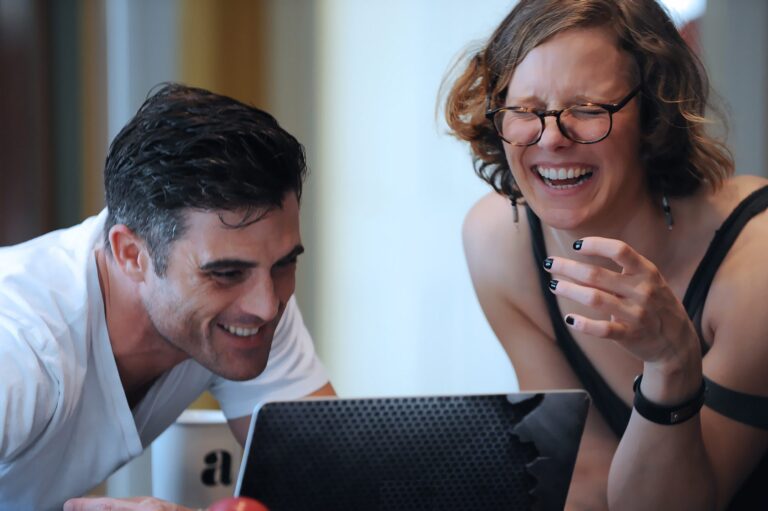[lead]Feminist pornographers don’t need pornographic work “reclaimed” on their behalf. Instead, interested parties would do well to take a step back and listen to women who work in the adult industry.[/lead]
By Angie Rowntree
More and more, it seems like everyone knows a whole lot about porn.
Wired describes a mission to get more women into porn, a response to mainstream production companies creating “the same boring stuff… managed by the same kind of narrow-minded men.” TeenVogue claims “most mainstream porn shows thin, white, hairless, cisgender people having straight sex in which the women don’t experience pleasure.” HelloGiggles explains that Hollywood, specifically Rashida Jones via her soon to be released docu-drama Hot Girls Wanted: Turned On, wants to “reclaim porn as a feminist space” — from the feminist women already working in the adult industry?
Though these statements correspond with popular rhetoric aboutporn, they don’t accurately describe porn itself. In reality, adult entertainment is extremely diverse, from the content itself to the people who create it. I know — I’ve been a pornographer since the ‘90s.
To people outside the adult industry, porn is more than a little bit mysterious — and there are many reasons for this. We live in a world that is phobic about sex and very phobic about sex work. Consequently, a commercial industry that relies on both sex and sex work must stay a bit on guard in order to avoid persecution. At the same time, humans are very interested in sex — so they flock to pornographic content with little-to-no frame of reference or context. And so goes the socially driven, self-perpetuating cycle of imprecise pornographic “understanding.”
Though these statements correspond with popular rhetoric about porn, they don’t accurately describe porn itself.
Imprecise understanding shaped by sex phobia — FYI: fear mongering about sexual expression that doesn’t correspond with wider norms and/or your sexual expression is a type of sex phobia — was exemplified in Jones,’ et al’s Hot Girls Wanted (2015). Today, the team is back with a follow up, one that claims to take a more multidimensional approach to exploring the vast and complex adult entertainment industry and its relationship with wider society — Hot Girls Wanted: Turned On (slated to be released as a series on Netflix sometime in 2017).
I wanted to believe Jones’ intentions were good when I heard about this next installment. When the inevitable rumors circulated about industry insiders the filmmakers may have spoken to to inform Turned On, I was hopeful. But then I started reading the seemingly inevitable indicators of imprecision, namely: “Rashida Jones wants to reclaim porn as a feminist space…”
In an impassioned fury, award-winning writer and director Jacky St. James aired her grievances regarding civilians (porno speak for those outside the industry), including Jones, “acting like feminism in porn doesn’t exist.” St. James talks about the lack of fact checking, a reliance on piracy-based tube sites like PornHub (which is the most unethical and anti-feminist way to view porn, by the way), and essentially how the uninformed are the last people who should be attempting to educate the masses — no matter how big a platform they have access to.
Fear mongering about sexual expression that doesn’t correspond with wider norms or your sexual expression is — in fact — a type of sex phobia.
As a feminist pornographer, I don’t need Jones or anyone else attempting to “reclaim” pornographic work on my behalf. Unlike those who spend a great deal of time talking about porn, I have worked for decades to create a unique space for sexual expression and representation, one that’s guided directly by my Sssh.com members. I will continue to work with the tides of sexual expression where possible, as well as against opposition when it presents itself. Every life’s work is a process and balance in this manner.
What I would love for Jones and her associates to do, however, would be to take a step back and listen to women who work in the adult industry. She could then use her influence and clear interest in the relationship between porn and society to signal boost what we on the inside already know — that porn is not perfect, that no porn is universally liked or stimulating (and that’s not bad), but that all content corresponds with someone’s sexual needs and desires (which is good). That diversity and its capacity to evolve is what’s ultimately most significant.
As a feminist pornographer, I don’t need Jones or anyone else attempting to ‘reclaim’ pornographic work on my behalf.
According to Jones, “We invited our biggest critics to be a part of [Turned On]… and not surprisingly, a lot of them didn’t want to.” This sounds a bit like excuse making — and in my view, here’s the issue she’s missing. There have been so many instances of outsiders attempting to tell porn’s story, which includes my story and the stories of my peers, and they all generally butcher it. Consequently, many producers and directors and performers are wary of becoming sensationalized clickbait for mainstream fodder. But if Jones and her production team would like to visit one of my Sssh.com sets, I actually welcome them.
I’ll make sure to leave a extra camera running though, to keep it all “on the record” – just in case.
—
Originally published on HuffingtonPost. Reprinted with permission. PHOTO: COURTESY OF SSSH.com/ANGIE ROWNTREE.



Comments are closed.